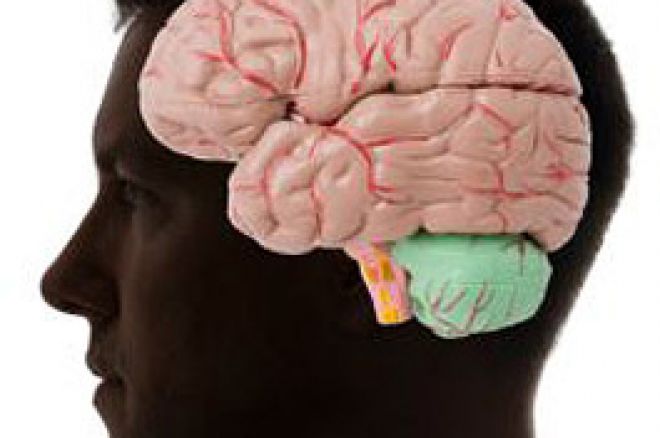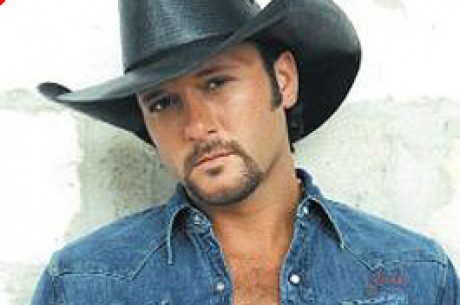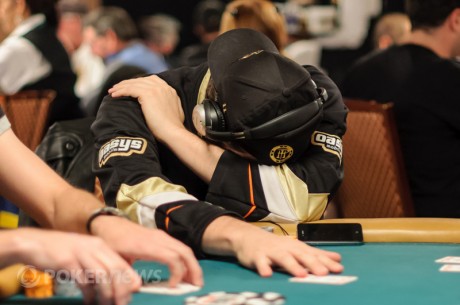The Poker Shrink, Volume 2 �C Psychology at the Table

I did a little psychological study at the just completed 2006 World Series of Poker. This was just my own little inquiry but the results surprised me so much that I thought I would share them with you. I wanted to ask winners of events about psychology and poker. I used two key questions:
"Do you use psychology in your game?"
"Specifically how did you use psychology in your WSOP win?"
Logistically getting an interview with a WSOP bracelet winner can be difficult. After a win, not only are they immediately pounced upon by official photographers and WSOP media staff but they also have the ESPN cameras to deal with and then they have the small matter of getting paid. So a bracelet winner is basically inaccessible for about two hours after their win and then usually they would like to spend some time with friends and family. Since most final tables end well after midnight, the winner is often just plain tired.
So I made it a practice to try to catch the champion the day after their win and I also supplemented the interview pool with winners of the Second Chance events run each evening at the WSOP. All together I was able to get interviews with 24 first place finishers; 12 bracelet winners and 12 second chance winners. If I was not able to locate a champion within 24 hours of their win, I decided the "How did you use psychology" question would not get a fresh answer, so I let them go. I must admit I was surprised by the responses I received.
In all, 23 of the 24 champions responded with immediate "Yes!" answers to the question: 'Do you use psychology in you game?' But most interesting may be the one player who said no. He told me that he did not read books on poker and played the way he learned at home as a youth and used what he had learned at the tables, no psychology, no system, no game plan. Then he went on to describe how whenever he ran a successful bluff to break out of a run of bad cards; he would always say while mucking his bluff: "It's about time I got some cards." He said he always liked to give a misleading comment on bluffs or on monster hands he did not show. He felt this put his opponents off any reads they were making on him. Now I don't know about you but that tactic certainly qualifies under my definition of psychology.
The other players all agreed immediately that psychology was part of their game. Here are what I thought were some great of the examples among the many they gave me in response to the question: 'How did you use psychology in your WSOP win?'
Player A. This bracelet winner got moved to a table on Day One that he knew would break very soon. At best he would get two rounds of blinds before moving to yet another table. On the first hand he got a lot of his chips in with a top pair and flush draw only to find himself out-kicked and drawing dead to the nut flush. He hit a runner, runner boat for the monster suck-out. His opponent went on a major tilt. A few hands later our bracelet winner hit another big suck-out and then hit a third before the table broke. Those he tells me were his only big come-from-behind hands in the entire tournament until late in Day Three just as they got to the final 27 players, he is reseated again with the player he had made the runner, runner boat against two days earlier. On the very first hand, he has awful odds to a hand but he is up against a short stack and "that" first day player has just joined the table. He thought was: "whether I make the hand or not, I can reinforce my loose image against this one player and dominate him if I get just one opportunity." He makes the play, does get the suck-out win, knocks the short stack out and eventually at the short-handed Final Table springs the trap on the first player to take 90% of his stack. That hand, he told me, was what won the bracelet.
Player B. This bracelet winner told me that he rehearsed four "false tells" the night before the final table. One with chips, one with hand gestures, one voice and one with the use of time. He used them all for the first two levels at the final table and then changed up one at a time. He told me he did this because the three final table bubbles (10th, 11th and 12th) all were busted after giving off obvious tells and he felt several of the other eight final table players were using reads heavily to direct their game.
Player C. This is my favorite from a Second Chance event winner, who was playing in his first live tournament and obviously first final table, first money finish etc. He was, by his own admission, nervous as "a cat in a room full of rocking chairs." So he kept up a constant conversation with his two buddies on the rail and the players at the table, and the dealer, the floor, the cocktail waitress. He said he was so nervous that if he didn't talk, he thought he might stop breathing. I got to watch this final table; I and everyone else thought this guy was calm to the point of being disinterested. He would talk while in a hand, talk before the flop, after the turn and even when he got bad beat. Fear qualifies as psychology too!
As always, questions and comments are welcome. Send to [email protected]
Ed Note: Heavy use of psychotropic, um - make that psychology is encouraged when playing at Paradise Poker








